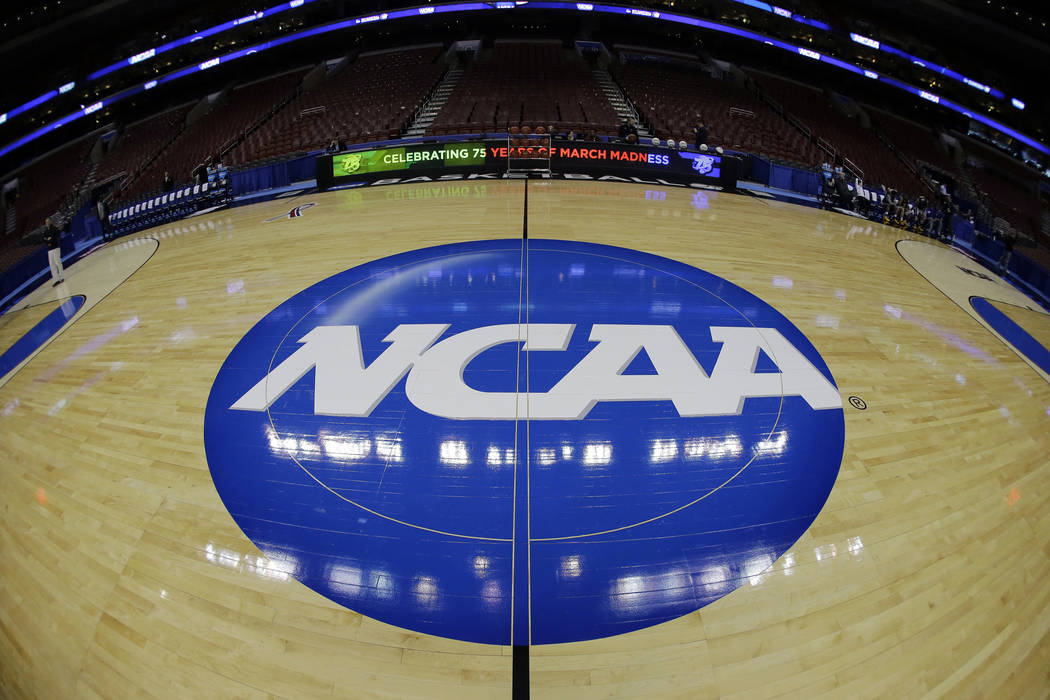NCAA adapting but still concerned about legalized sports betting
The NCAA has kept an arm’s length from Las Vegas and legalized sports wagering for many years, and three officials from college athletics’ governing body made clear Tuesday not much has changed.
But they also said the NCAA is adapting as legalized sports betting spreads nationwide.
“The NCAA has always been attentive to gambling despite our ‘Don’t bet on it’ stance that the association has had,” said Naima Stevenson Starks, the NCAA’s deputy general counsel.
The NCAA officials spoke on a panel at the International Conference on Gambling &Risk Taking at Caesars Palace. They laid out their concerns about sports betting and the steps the organization is doing to protect the integrity of games and athlete welfare.
Since 2004, the NCAA has conducted studies that measured gambling behaviors and attitudes of college athletes. Male athletes who consider themselves social gamblers have decreased from 66.7 percent in the first year of the study to 52.8 percent in 2016, and the number has gone from 48.6 percent for female athletes to 37.5 percent. The 2016 study showed that 24.3 percent of male athletes bet on sports over the past year and 4.5 percent of women did the same.
“Very few student-athletes who wager on sports in college begin that activity during their college years,” said Tom Paskus, NCAA principal research scientist. “A lot of them on the men’s side, that is becoming their entry point into gambling. It used to be card playing, but more and more it’s becoming sports wagering.”
Despite such concerns by the NCAA, the organization was re-evaluating whether to loosen certain practices. The most recent was the decision May 3 to lift the ban on putting NCAA championships in states with legal, single-game wagering.
That ban had applied to Nevada only, but the Supreme Court last year overturned a federal ban on sports betting, kicking the decision to the states. That led to the inevitable growth in legal sports betting, now available in eight states.
That made the NCAA’s policy regarding hosting sites “an untenable position,” Stevenson Starks said.
She said these were the other areas the NCAA could consider changing its policy:
■ Allowing college athletes to bet on professional sports.
■ Accepting advertising or sponsorships from companies “that promote sports wagering.”
■ Allowing events at venues with in-house wagering capabilities. An option could be to make sure those were closed during college contests.
One change that probably won’t be made relates to establishing an eligibility report for each game. Though Stevenson Starks said the NCAA was concerned about gamblers getting close to athletes to find out injury and roster information, federal student privacy laws make establishing such reports difficult.
The NCAA has benefited from Las Vegas’ expertise over the years, including the notification of when unusual betting lines occurred. Stevenson Starks said the NCAA was still willing to work with local sportsbook directors.
“That would be something that we would absolutely be interested in,” she said, “if not a seat at the table, certainly an open line of communication to make sure we have a pulse of what’s going on.”
More betting: Follow at reviewjournal.com/betting and @RJ_Sports on Twitter.
Contact Mark Anderson at manderson@reviewjournal.com. Follow @markanderson65 on Twitter.



















